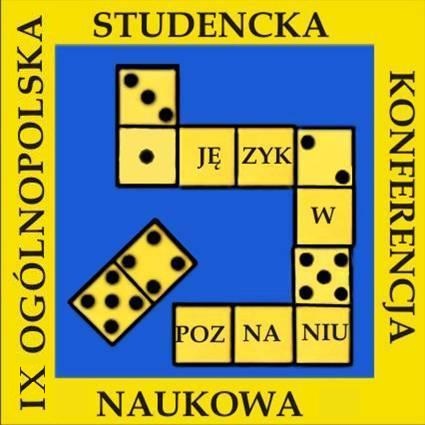IX edycja - abstrakty
Główna |
Organizacja |
Abstrakty |
Program |
Plakat |
Galeria |
Wytyczne |
Ankieta |

Prezentujemy listę referentów oraz tytułów wystąpień wraz ze streszczeniami. Zapraszamy do lektury!
Przypominamy, że język, w którym podany jest tytuł, jest równoznaczny z językiem całego wystąpienia.
Pod każdym streszczeniem umieszczony jest skrócony program, dzięki któremu można dowiedzieć się, jakie inne referaty będą wygłaszane podczas danej sekcji.
Alicja Piotrowska (Poznań)
Group genitive in Swedish: S-genitive as a phrase marker
The topic of my presentation is the modern s-genitive and its function as a phrase marker in the Swedish nominal phrases. The Swedish s-genitive is considered by many scholars (Delsing 1991, Norde 1997) to be a phrasal marker, which means that it is attached to the whole phrase, as in example drottningen av Englands son (eng. the queen of England's son). The s-genitive went then from being a bound case affix to a more free phrase element, which is a prominent example of degrammaticalization (Norde 2006, 2009). There are three types of group genitive where the s-genitive may appear on the last element of the phrase, that is 1) coordinated noun phrases, 2) noun phrase and a prepositional phrase and 3) noun phrase and a relative clause.
The study on group genitive that I am going to present constitutes a vital part of my Master's thesis. The material analyzed consists of authentic examples of everyday speech from the Swedish corpus Språkbanken and from the questionnaire conducted with native Swedish speakers. My presentation consists of a short introduction into the evolution of the s-genitive followed by an analysis of the three types of the Swedish group genitive based on the examples from the corpora and the questionnaire. The results show a definite increase in the use of group genitive, but at the same time the increase is almost exclusively limited to a very coloquial use of language. The relatively low frequency of the use of group genitive is thus inconsistent with what the literature on the subject conveys.
Gdzie i kiedy:
| W tym samym czasie ... 416, 504, 525 | sala: 526 moderacja: Tomasz Mowlik |
| 9:45-10:00 | Piotr Korsak, Iga Krzysik (UAM) - Foreign-accented speech and the efficiency of automatic speech recognition: The case of Siri® |
| 10:00-10:15 | Alicja Piotrowska (UAM) - Group genitive in Swedish: S-genitive as a phrase marker |
| 10:15-10:30 | Kinga Uszko-Skrzypczak (USZ) - Compounding revisisted |
| 10:30-10:45 | Barbara Nowosielska (UW) - Abstract nominalizations with names of states. A corpus-based study in academic and journalistic writing |
| 10:45-11:05 | dyskusja |